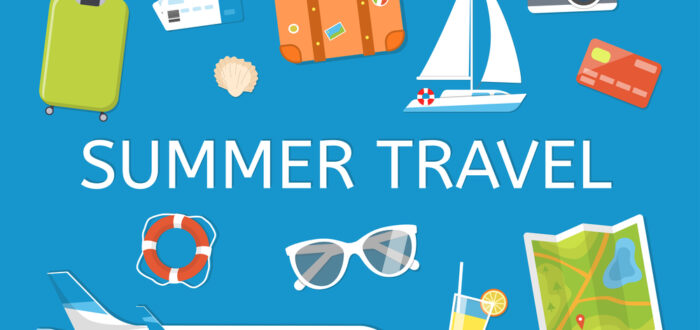Embarking on a summer vacation is an exhilarating experience that everyone deserves to enjoy, irrespective of their hearing abilities. Individuals with hearing loss, however, might face additional challenges during their travels.
But don’t fret – with the right preparation and know-how, the experience can be as seamless and enjoyable as for anyone else. Here are a few tips for individuals with hearing loss planning a summer getaway.
Summer Travel Tips for Individuals with Hearing Loss
Hearing loss can present unique travel challenges. That doesn’t mean that a hearing impairment should stop your travel plans. A few simple tips can make all the difference and help take the stress out of travel.
Pack Smart
First and foremost, ensure you’re prepared with all the hearing aids essentials you might need. Pack extra batteries, a charger, and other important accessories. It’s also wise to bring a dehumidifier for your hearing aids, as humidity levels can soar during the summer months.
Also, consider investing in a water-resistant hearing aid cover if you’re planning to be around water. Keeping these items in a waterproof and shockproof hard-case can ensure their safety throughout the journey.
Use Hearing-Assistive Technology
Travel, especially in crowded areas, can be challenging for those with hearing loss. Technology like hearing loop systems, amplified phones, and FM systems can greatly enhance the clarity of sound in such environments.
Check if your destination has hearing-assistive technology available. For instance, many museums, theaters, and airports nowadays offer these services.
App-based Solutions
In this era of smartphones, numerous apps can assist people with hearing loss. Live transcribe apps can convert spoken words into text in real time, and there are apps for amplifying sound or connecting hearing aids to your phone. Consult with your local hearing specialist for recommendations. You may also find this list of useful apps for individuals with hearing loss helpful.
Inform Your Travel Company
Communicate your needs to your travel company, airline, or hotel ahead of time. Most places offer services for those with hearing impairments, like visual alerts for flight updates or hotel wake-up calls. The Transportation Security Administration also offers special procedures for individuals with hearing loss, ensuring a smoother airport security experience.
Check Accessibility at Your Destination
Before finalizing your trip, research the accessibility of your chosen destination. Some places are more accommodating to hearing-impaired visitors than others.
Connect with Local Communities
Engaging with local hearing loss communities or associations can provide additional support during your trip. They can share specific tips and insights about navigating the area and offer recommendations tailored to your needs.
The key to a memorable summer vacation for individuals with hearing loss lies in thorough preparation and leveraging available resources and technology. Remember, your hearing impairment shouldn’t limit your ability to enjoy the beauty and excitement of travel. With these tips in hand, you’re set to explore new horizons. Happy traveling!
Need Help? Have a Question? Contact Us Today!
If you’d like to discuss more about how summer travels with hearing loss, please get in touch with the team at Regional Hearing and Balance Center today. Call us at 208-497-3596 or click here to book a complimentary hearing assessment.


Recent Comments